Iran insists on exhausting all legal capacities in pursuing Gen. Soleimani’s assassination case
Iran’s acting foreign minister insists that the country will exhaust all available domestic and international legal capacities towards consigning those involved in the assassination of the country’s top anti-terror commander to justice.
Ali Bagheri Kani made the remarks to CNN’s Fareed Zakaria on Wednesday in New York, to which the top diplomat has travelled to attend two United Nations Security Council meetings.
The Islamic Republic would spare no legal efforts to ensure that “justice is served in the case,” he said, asserting, “This is our right.”
Lieutenant General Qassem Soleimani, commander of the Quds Force of Iran’s Islamic Revolution Guards Corps (IRGC), Abu Mahdi al-Muhandis, the second-in-command of Iraq’s Popular Mobilization Units (PMU), and their companions were assassinated in a US drone strike authorized by former US President Donald Trump near Baghdad International Airport on January 3, 2020.
The commanders were highly revered across West Asia due to their key role in fighting the Daesh Takfiri terrorist group in the region, particularly in Iraq and neighboring Syria.
Zakaria also questioned Bagheri regarding allegations that were leveled by CNN earlier in the week, in which the network claimed that American authorities had obtained “intelligence from a human source in recent weeks on a plot by Iran to try to assassinate Trump.”
The claim emerged after an assassination attempt against Trump that took place while he was campaigning in Butler, Pennsylvania. Trump survived the attempt, suffering an ear injury.
The Islamic Republic has reacted by roundly rejecting the allegation, and considering it to be a product of malicious political goals and intents.
Bagheri reiterated the rejection, stating, “We have only used and will continue to use our own domestic legal and judicial frameworks and mechanisms and the [available] international ones towards [ensuring] administration of justice regarding those who had ordered, perpetrated, and advised the assassination of General Soleimani.”
Warlike Israel inviting ‘serious risks’
Elsewhere in his remarks, the Iranian official commented on the Israeli regime’s repeated threats of expanding its ongoing genocidal war against the Gaza Strip to Lebanon.
“It seems like the Zionists are inclined to expand [existing] tensions to other parts of the region in order to make up for the failures and frustrations that they have suffered in Gaza,” he said.
Bagheri was referring to the Israeli regime’s failure to realize any of its goals, such as elimination of Gaza’s resistance movements, enabling release of the captives that have been held by the groups, and bringing about displacement of Gaza’s entire population to neighboring Egypt.
He described the regime’s defiant attempts at fanning the flames of war as a “strategic mistake” that stood to invite “serious risks” for Tel Aviv.
As cases in point, the top diplomat noted how several new fronts had opened up against the regime across the region since the onset of the Gaza war.
Acting in support of war-hit Palestinians in Gaza, resistance groups hailing from Lebanon, Iraq, and Yemen have fired hundreds of rockets and missiles towards sensitive targets throughout the occupied Palestinian territories and crippled Israeli-affiliated maritime activity to devastating effects for Tel Aviv.
“The crimes that the Zionists have perpetrated over the past nine months never managed to turn standing circumstances in their favor,” Bagheri said.
Perpetuation of these crimes does not serve their interests either and stands to activate further capacities against them, Bagheri noted, describing cessation of the war on Gaza as “the only pathway that can save Zionists from further risks.”
Iran embassy rejects 'fabricated' French reports on domestic affairs
Trump’s military buildup against Iran on Netanyahu’s behalf is a gambit doomed to fail
Iran dismisses US 'big lies' on nuclear, missile programs
CIA‑founded NGO admits deploying Starlink satellites for Iran riots
VIDEO | French comedian targeted by Rothschild and Epstein for his shows on Palestine
Iranian commanders warn US not to mistake it for other nations
Daesh leaders reemerge in Raqqah amid growing instability in Syria
Iran rejects UN resolution on Ukraine for lack of support for lasting peace


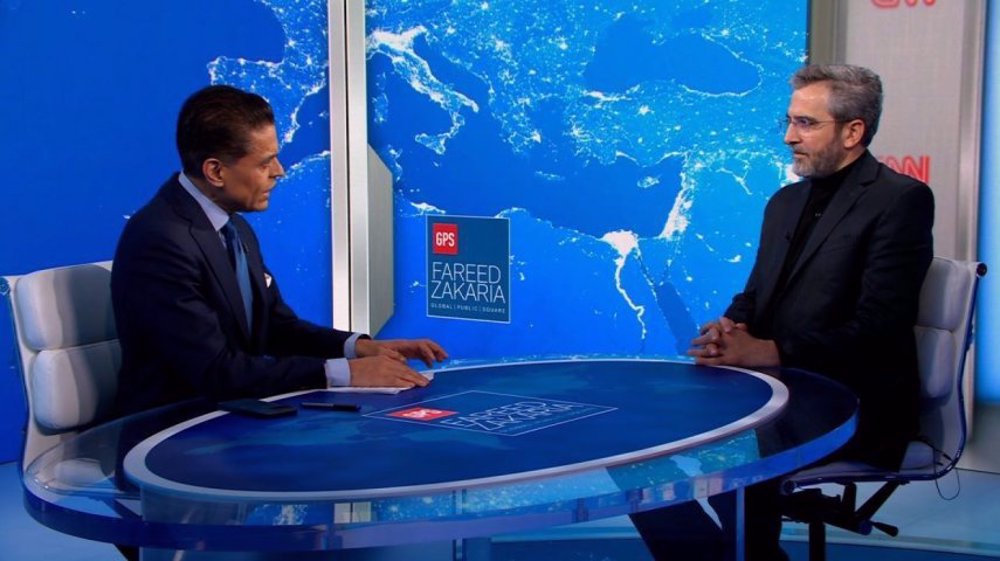
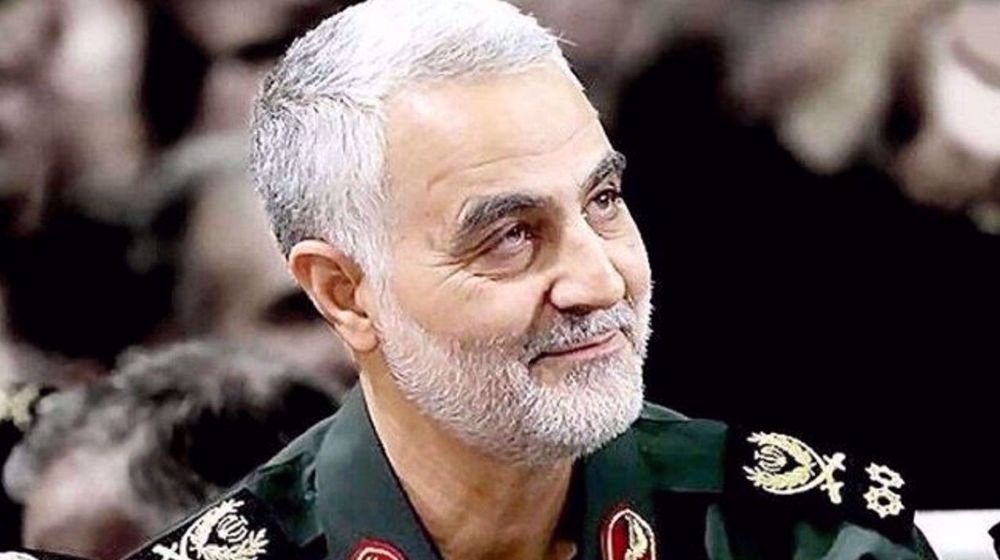
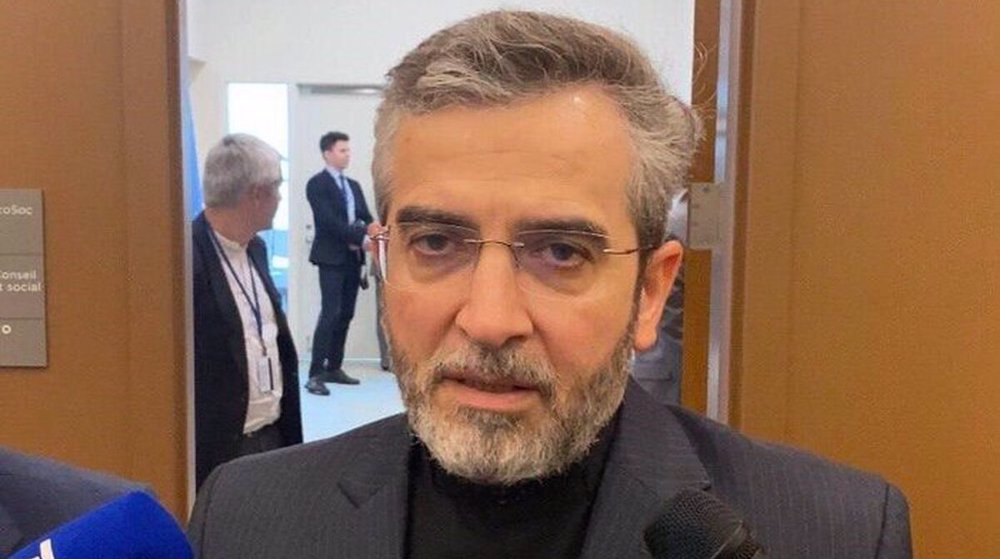
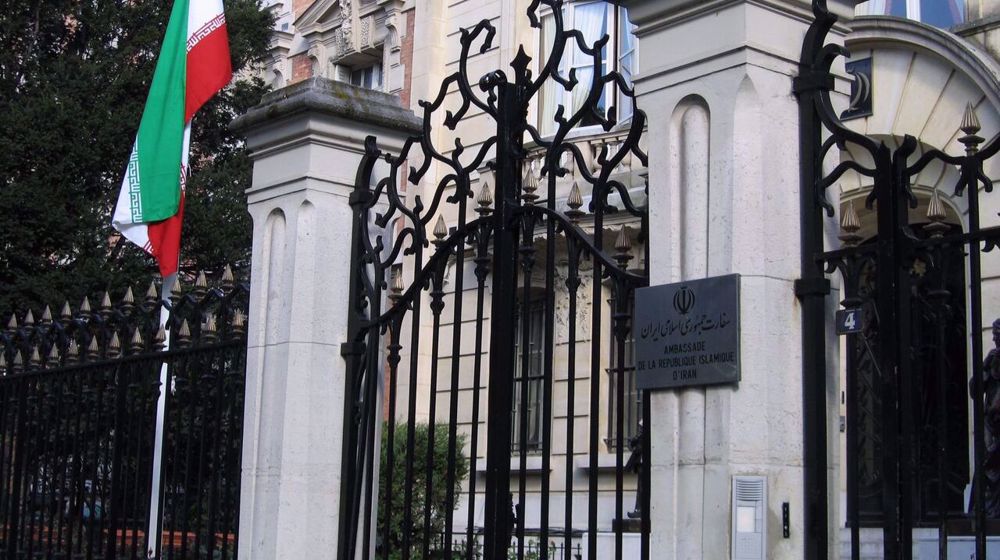
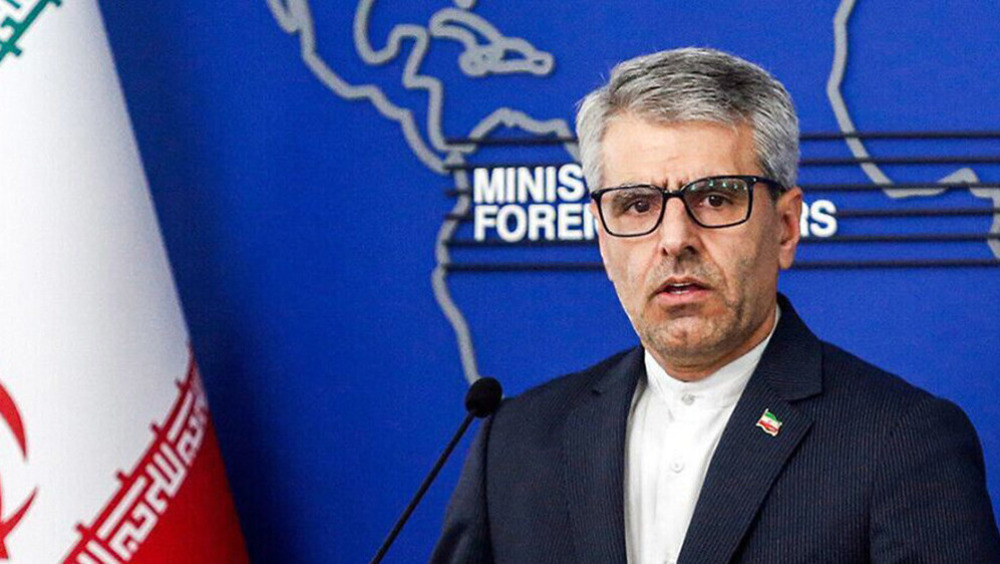
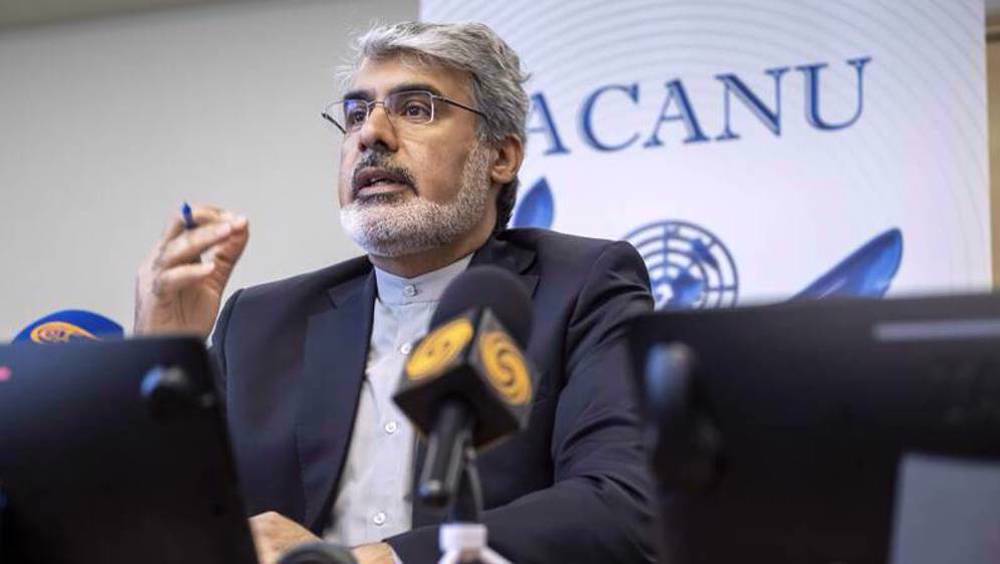



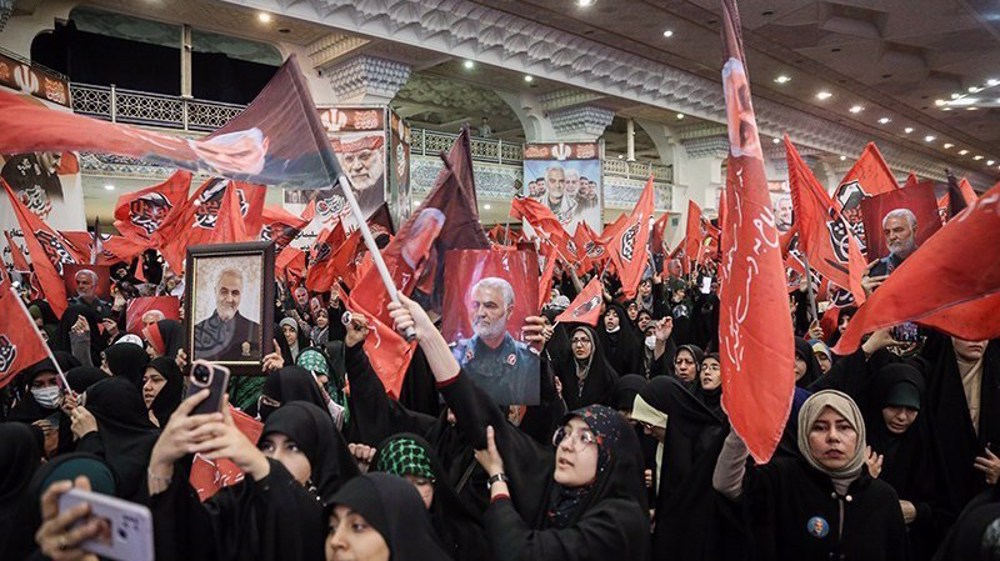
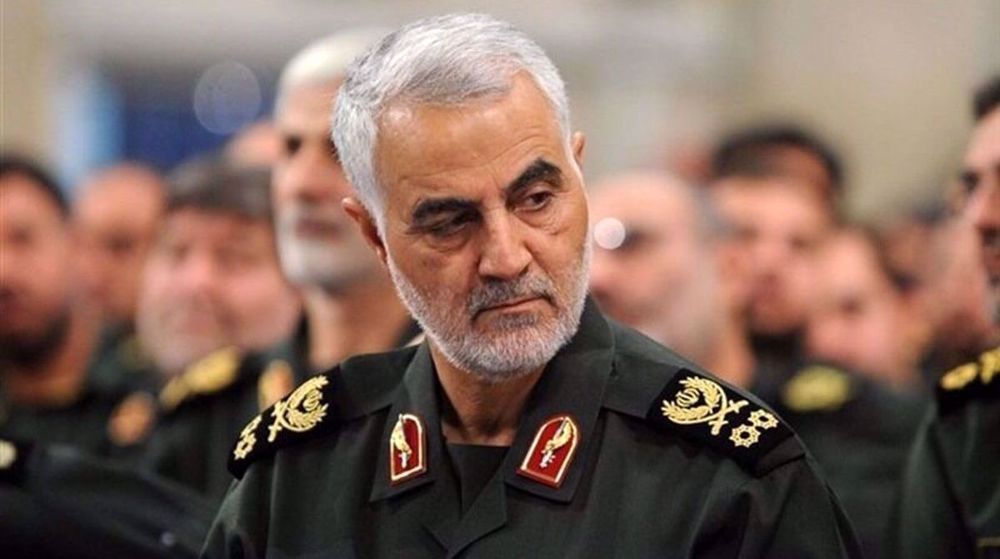
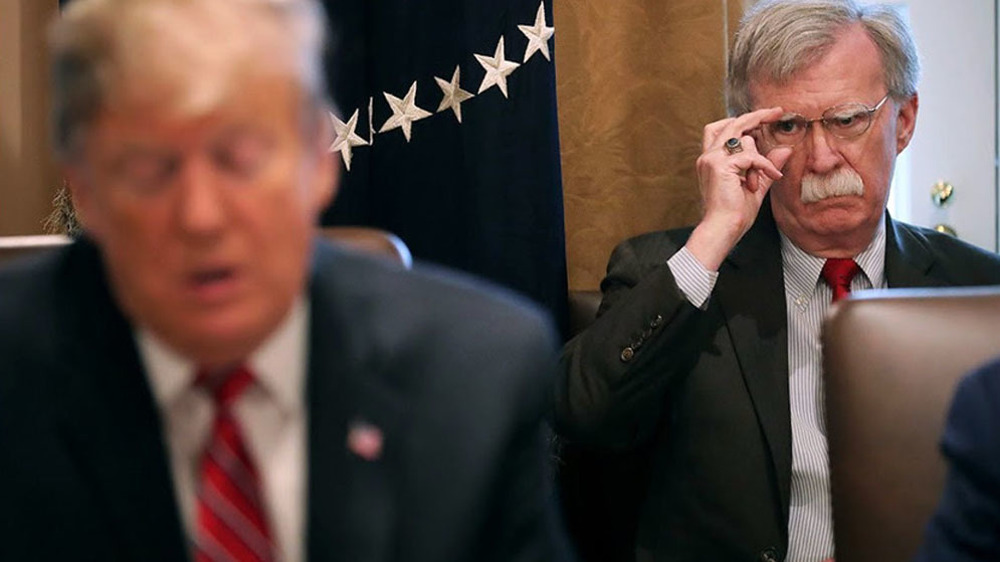

 This makes it easy to access the Press TV website
This makes it easy to access the Press TV website